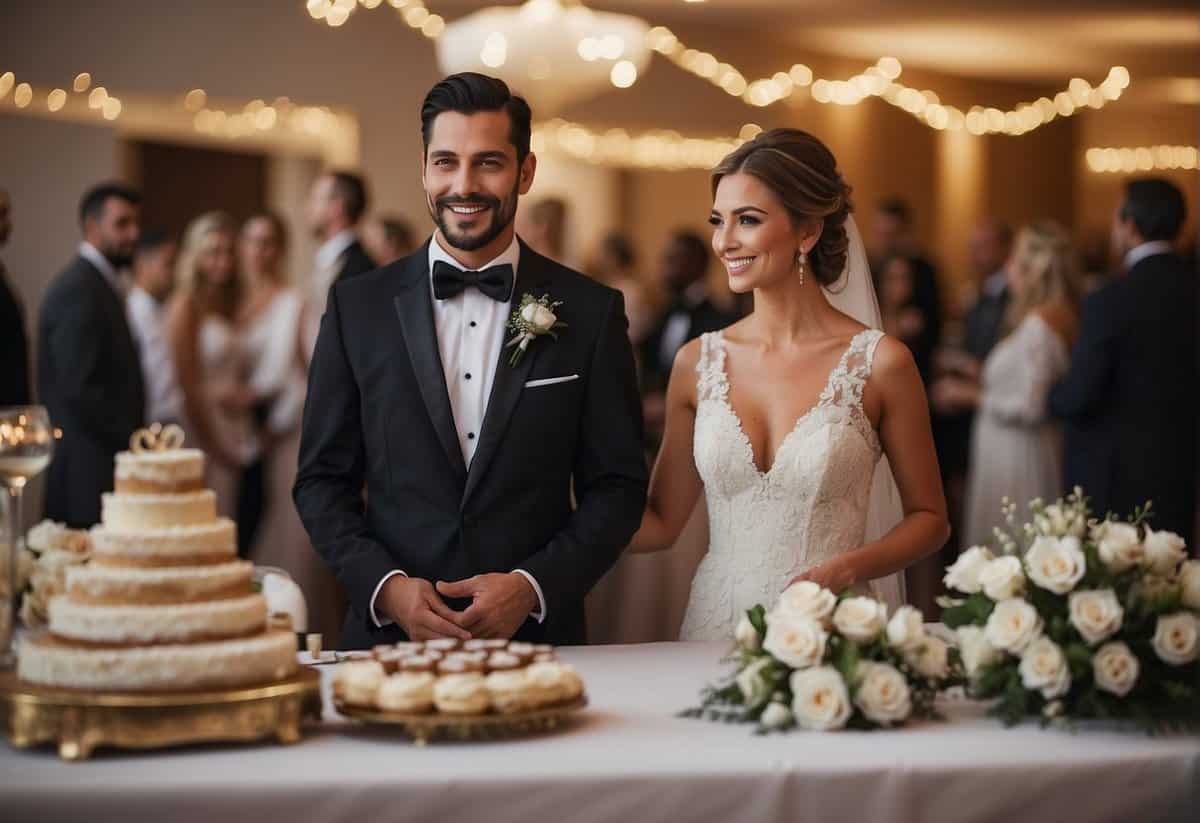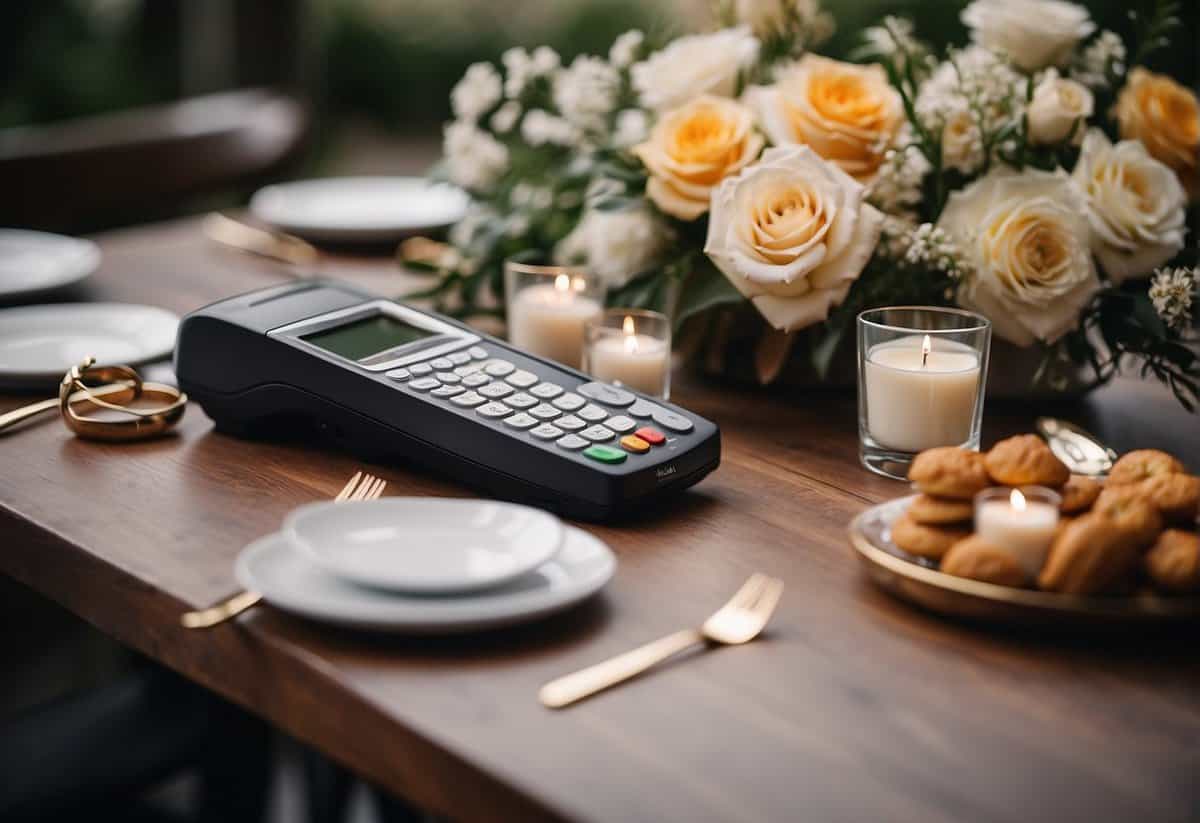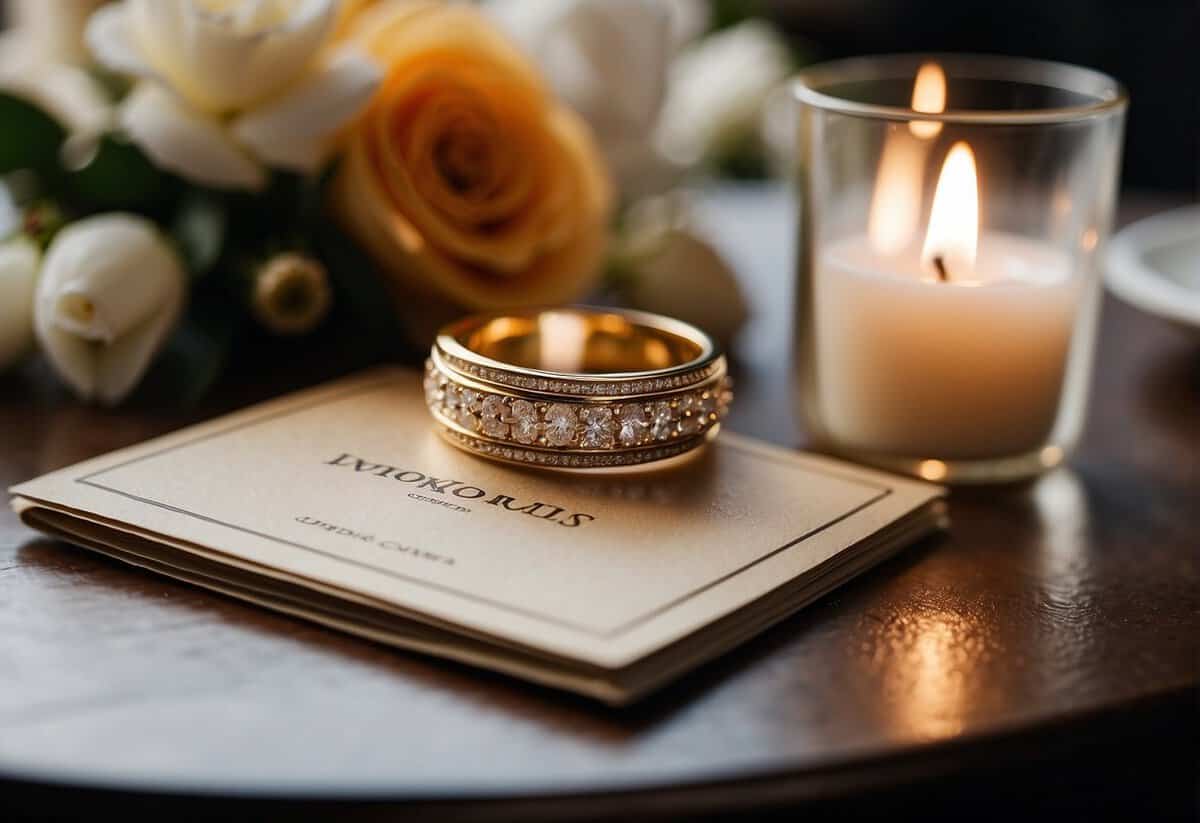How Do People Pay for a Wedding in the UK? Understanding Financial Options for Your Big Day
Planning your wedding can be one of the most exciting times in your life, but figuring out how to pay for it in the UK often brings a dose of reality to those nuptial dreams. Traditionally, the cost of a wedding was divided among the families of the couple, but times have changed. Today, it’s not uncommon for the couple themselves to fund their big day either partially or wholly. With the average cost of a wedding in the UK being a significant expense, it’s important to approach this financial milestone with careful consideration.

Mounting costs for venue hire, catering, attire, and other wedding essentials mean that budgeting becomes a crucial step in the wedding planning process. Couples must determine early on what they can afford, what they’re willing to spend, and if they’ll need financial support. While financial assistance from family remains prevalent, with many parents still contributing to their children’s weddings, it’s not a given. Additionally, some couples choose to tackle the financial responsibility together, often saving for several years to fund their celebrations or considering loans as a way to cover costs.
When it comes to the actual day, certain elements of the wedding often take priority in terms of budgeting. Venue costs, food and drink, and attire are typically at the top of the list. Knowing where to allocate your money requires prioritizing what’s truly important for your special day. Whether it’s splurging on a dream venue or ensuring you have a photographer to capture every moment, these decisions all add to the financial tapestry of your wedding.
Key Takeaways
- Modern UK couples often contribute to or fully fund their own weddings.
- Budget planning is essential due to the various expenses involved in weddings.
- Priority should be given to essential elements when allocating the wedding budget.
Planning and Budgeting

In the UK, carefully planning and managing a wedding budget is essential to ensure your special day is both memorable and within financial reach. Let’s focus on setting up a viable budget and navigating the various costs involved.
Establishing a Wedding Budget
Your first step is to determine what you can afford without overextending yourself. A realistic wedding budget should consider your current savings, any contributions from family, and what you can comfortably save in the time leading up to your wedding. Avoid relying too heavily on loans or credit cards, as the cost of living crisis makes it all the more critical to avoid starting married life in debt. A common rule of thumb, drawn from hitched.co.uk, suggests allocating specific percentages of your budget to different aspects of the wedding, like approximately 3.5% to the wedding cake.
Navigating Costs and Expenses
With a budget in place, itemizing your wedding costs is next. Here’s a brief breakdown:
- Venue: Often the most significant expense, research options and book well in advance.
- Catering: Can vary widely depending on the number of guests and menu choice.
- Attire: Includes not only your wedding dress and suit but also outfits for the bridal party.
- Photographer/Videographer: Essential for capturing memories; prices differ based on experience and package.
- Music/Entertainment: DJ or band? Your choice will influence the cost.
- Flowers/Decor: From minimalistic to luxurious, your vision will guide the budget.
- Additional Expenses: Invitations, transport, and rings.
Each choice should align with the initial wedding budget you determined. Cut down on costs where you can but remember that some things, like the quality of photography, may be worth the investment. While some UK couples spend an average of £20,775 on their wedding, according to Bridebook, your budget might be higher or lower. The key is to spend wisely, favouring contributions to your wedding spending over accruing debt.
The Big Day Essentials

When planning your wedding, focusing on key elements such as the location, food and beverage offerings, and attire will help make your day unforgettable.
Choosing the Perfect Venue
Your choice of venue is crucial as it sets the tone for your wedding day. Consider both the ceremony and reception sites, whether traditional, rustic, or modern. The wedding venue cost can vary significantly, so look for places that offer the right balance of charm and affordability. Remember to book early to secure your ideal date.
Selecting Catering and Drinks
A memorable celebration is always accompanied by delightful food and drink. Wedding catering can range from formal sit-down dinners to casual buffets, with costs varying based on the menu complexity and guest count. Don’t forget the wedding cake, a centerpiece that should both look and taste exquisite. For drinks, consider if the venue allows external catering for alcohol, which could help manage expenses.
Dressing for the Occasion
Dress to impress on this special day. Your wedding dress and wedding jewellery, including the cherished engagement ring and wedding rings, will be featured in countless photos. While keeping an eye on the latest wedding fashion, also think about comfort and personal style. Outfit costs can escalate, so establish a budget that allows for splurging on the essentials while saving on accessories.
Additional Wedding Elements

When planning your UK wedding, in addition to the venue and attire, you’ll want to ensure that the decor, photography, and entertainment reflect your personal style and create an unforgettable experience for you and your guests.
Decor and Floral Arrangements
Your wedding decor and floral arrangements set the tone for your special day. Think about choosing wedding flowers that complement your theme and season. A professional wedding florist can guide you in selecting the perfect blooms to create a cohesive look. Consider also the non-floral elements that can elevate your space, like lighting, table linens, and centrepieces.
Capturing the Memories
Photography and videography are key to preserving your wedding memories. Opt for a professional wedding photographer who’s style you adore to capture candid and posed moments throughout the day. Discuss with them the must-have shots and consider a shot list to ensure nothing is missed. Similarly, a wedding videographer can provide a dynamic retelling of your day. They can capture moments you may miss and create a video that tells your story beautifully.
Entertainment and Special Touches
The right entertainment and music at your wedding make it enjoyable for everyone. Live bands or DJs help to create a lively atmosphere and can work with you to customize the playlist. Beyond music, consider the unique touches that make your wedding feel personal; think photo booths, magicians, or even fireworks. And don’t forget the wedding favours and gifts which serve as a token of appreciation to your guests and reflect your personal style.
Financial Responsibilities and Considerations

When planning your wedding in the UK, understanding who traditionally covers certain expenses and how to navigate the financial aspects is crucial. Knowing these details ensures a smoother planning process and helps manage expectations.
Who Pays for What?
Traditionally, the bride’s family was responsible for most of the wedding costs, including the ceremony and reception. However, in recent times, many couples have begun financing their own wedding expenses. Despite changing trends, some costs remain rooted in tradition. For example, the groom’s family often pays for the rehearsal dinner and sometimes the honeymoon.
Wedding party members usually cover their own attire with bridesmaids paying for their dresses and groomsmen covering the cost of renting suits or tuxedos. The attendees often pay for pre-wedding festivities like the stag do and hen party. Gifts for the wedding couple are traditionally brought by wedding guests, sometimes contributing significantly to the couple’s post-wedding life.
- Engagement Party: Generally, the host incurs these costs.
- Rehearsal Dinner: Traditionally falls under the groom’s family’s financial responsibility.
- Honeymoon: Often a gift or paid for by the groom’s family but varies greatly nowadays.
- Stag Do/Hen Party: Usually funded by the attendees and the honoree.
Managing Post-Wedding Costs
Post-wedding costs can include anything from transporting wedding gifts to your home, sending out thank you notes, and covering outstanding payments to vendors. Communication with your partner about budgeting is essential throughout the wedding planning process. Keep track of expenses in a shared document and be transparent about your financial limits and expectations. Remember, the honeymoon spend should be factored into your overall budget, allocating funds for travel, accommodations, and any activities to avoid post-wedding financial stress.
- Guest Numbers: Bigger guest lists mean increased costs; balance your wishes with your budget.
- Wedding Gifts: Decide whether to keep, return, or exchange gifts, which can impact your finances.
- Marriage License: Don’t forget this essential but often overlooked expense.
By keeping these elements of wedding etiquette in mind and maintaining open lines of communication, your financial responsibilities can be managed effectively.
Frequently Asked Questions

When planning your big day, it’s essential to know the financial options and expectations around wedding costs. Here are some common questions to help you navigate funding your wedding.
What are some ways to finance a wedding if you have limited funds?
If you’re working with a small budget, consider a modest ceremony and perhaps a larger, casual reception. Other couples opt for DIY elements to save costs, or they may set up a wedding savings account and contribute over time.
What is typically expected for the bride’s parents to contribute financially to the wedding?
Traditionally, the bride’s parents may cover costs like the wedding dress, venue, and reception. However, expectations are shifting, and many couples now share the expenses more evenly with their families or pay for their wedding independently.
How do traditions dictate the split of wedding expenses in England?
Traditionally in England, wedding costs are split with the bride’s family contributing to particular aspects like the ceremony, while the groom’s family might take on the honeymoon costs. However, modern practices suggest a 50-50% share between the couple and their parents.
Is it common for weddings to be paid in installments and how would that work?
Yes, many vendors and venues allow you to pay for the wedding in installments. This usually involves paying a deposit upfront followed by periodic payments until the full cost is covered by the wedding date.
What are the general expectations for who covers the cost of the wedding reception?
Expectations can vary, but traditionally, the cost of the wedding reception often falls to the bride’s family. Currently, with trends toward equality and partnership, many couples share the cost of the reception.
At what point are individuals expected to cover their own wedding costs without parental help?
The expectation varies widely among individuals and is based on personal circumstances. Generally, if couples are financially stable and independent, they might choose or be expected to finance their wedding without parental assistance.


